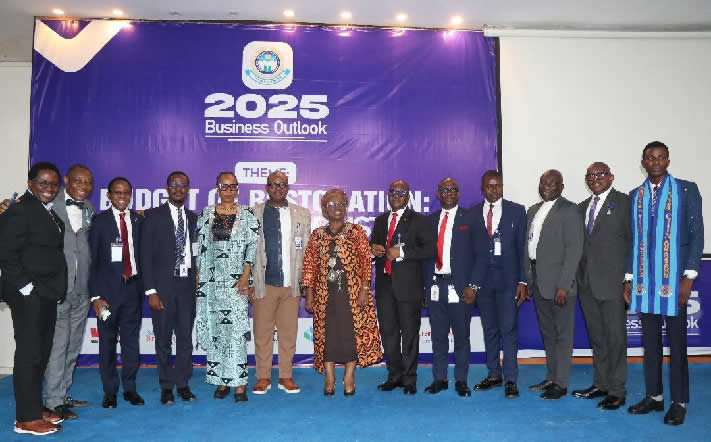The Nigerian insurance sector is being urged to capitalize on the opportunities presented by the recently passed N54.99 trillion 2025 Appropriation Bill, dubbed the “Budget of Restoration.” This call to action emerged from the Chartered Institute of Insurance of Nigeria’s annual Business Outlook, themed “Budget of Restoration: Insurance Industry Tool for Unlocking Sustainable Growth.” The budget, predicated on assumptions like a $75/barrel oil price and 4.60% GDP growth, earmarks significant allocations for infrastructure, SMEs, and various sectors like health and power, creating a ripple effect of opportunities for insurance providers.
Akinyemi Ashade, a Partner at KPMG, highlighted specific avenues for insurance growth within the budget framework. He pointed to infrastructure projects, which necessitate insurance coverage for goods in transit, marine imports, special equipment, and project guarantees. The projected expansion of SMEs translates into increased demand for group life insurance, pension plans, and health insurance for employees. Furthermore, Ashade emphasized opportunities within the health sector, driven by ongoing transformations and the establishment of regional development commissions, which will further fuel infrastructure projects and their associated insurance needs. The power sector, with its grid expansion and renewable energy projects, also presents significant insurance prospects. Ashade also encouraged the insurance sector to engage with the Nigerian Education Loan Fund (NELFUND) by pricing in insurance risk to mitigate potential defaults.
Beyond specific sectors, Ashade underscored the importance of regulatory collaborations in maximizing opportunities, particularly in group life and motor insurance. This sentiment was echoed by the Commissioner for Insurance, Olusegun Omosehin, who stressed the need for the insurance sector to be an integral part of the budget implementation process. He encouraged industry players to collaborate, redesign products, and seek public-private partnerships to leverage the budget’s provisions effectively. He emphasized the alignment between the budget’s restorative aims and the insurance sector’s potential, urging the sector to proactively adapt its business strategies and product offerings to address both industry-specific and national challenges.
Mrs. Yetunde Ilori, President of the Chartered Insurance Institute of Nigeria, provided a roadmap for the sector’s strategic response to the budget’s opportunities. She emphasized several key actions: enhancing public trust through ethical practices and prompt claims settlements; prioritizing customer-centric policies; embracing technology to improve accessibility and efficiency; strengthening regulatory frameworks to ensure stability; building strategic partnerships across government, private sector, and international bodies; and promoting financial literacy to educate the public on the benefits of insurance. She highlighted the critical role of insurance not merely as a financial safety net, but as a vital driver of economic stability and national growth.
Ilori’s address challenged the sector to introspect and innovate. She posed crucial questions about increasing insurance penetration, developing solutions for emerging risks in sectors like agriculture, technology, and health, and strengthening collaboration between the insurance and pension industries to offer comprehensive financial security to Nigerians. She underscored the importance of the Business Outlook as a platform to address these critical questions and chart a course for the sector’s future. Her call to action centered on rebuilding trust through improved claims settlement and customer experience, investing in technology for seamless access, strengthening partnerships, and promoting financial literacy.
The overarching message from the Business Outlook was a call for proactive engagement and strategic positioning. The 2025 budget, with its focus on infrastructure development, SME growth, and sectoral advancements, presents a unique opportunity for the insurance industry to not only expand its market share but also contribute significantly to national economic growth. By embracing collaboration, innovation, and customer-centric approaches, the insurance sector can unlock its full potential and become a key player in Nigeria’s restorative journey. The participation of other experts like Oyekanmi Aboyeji of the Federal Inland Revenue Service and Charles Ilo of KPMG Africa further enriched the discussions, highlighting the multifaceted nature of the budget’s implications and the need for a holistic approach to leveraging its potential.


